My weekly blog posts for the next several weeks will provide an array of tax saving tips for ministers. Topics will include:
- Maximizing tax savings for the minister’s housing allowance
- Reimbursing a minister’s expenses tax-free
- Car allowance versus mileage reimbursement
- Educational benefits for ministers
- Tax-free health benefits for ministers
- Retirement plans for ministers
- Structuring a minister’s compensation package
- Opting out of Social Security
As an introduction to this series of posts, we first need to clearly define who is treated as a minister under the tax code.
According to the Internal Revenue Code a minister must satisfy two separate tests:
- Be licensed, commissioned or ordained, AND
- Perform ministerial services. These services could be provided in denominational service, as a missionary, an evangelist or within a local church. Below is a list of ministerial services the IRS looks for in staff members of local churches. It is not required that the minister perform all of these services on a continual basis. However, the more of these services that are provided the more likely the IRS would agree that that you qualify as a minster.
- Administer the sacraments of the church (baptisms, weddings, funerals, and communion, etc.),
- Be considered a religious leader by the church,
- Conduct religious worship, and
- Have management responsibilities in the church.
The Senior Pastor will almost always qualify as a minister. A music minister, youth minister or children’s minister may also qualify as long as they satisfy each of the two separate tests.
If you meet the definition of a minister under the tax code, you will be subject to the following special tax treatment:
- Although staff ministers of a local church are employees of their church, they must pay Social Security and Medicare tax (aka the self-employment tax) as if they are self-employed,
- Ministers do not have Social Security or Medicare withheld from their paychecks, and their church is not responsible for any Social Security or Medicare matching,
- Ministers are not required to have federal income tax withheld from their paychecks (but they may choose to have voluntary withholding),
- Ministers are eligible for an income tax-free housing allowance and/or to live in the church provided parsonage free of any federal income tax, and
- Ministers have a limited opportunity to opt-out of Social Security and Medicare for their ministerial income.
IRS Publication 517 contains additional tax information for ministers: https://www.irs.gov/pub/irs-pdf/p517.pdf
I hope you find this series enlightening, beneficial and practical. I will strive to help you understand the peculiarities of ministerial taxation and provide practical steps to minimize your tax burden.
Up Next Week: Maximizing tax savings for the minister’s housing allowance

Jerry Walker is a CPA with more than 28 years of tax and accounting experience. Throughout his career he has provided tax and accounting services to scores of ministers and churches. He is also a founding partner in FlockBase Software, “The Affordable Church Software Solution.”
DISCLAIMER:
Any accounting, business or tax advice contained in this communication, is not intended as a thorough, in-depth analysis of specific issues, nor a substitute for a formal opinion, nor is it sufficient to avoid tax-related penalties. If desired, (Firm) would be pleased to perform the requisite research and provide you with a detailed written analysis. Such an engagement may be the subject of a separate engagement letter that would define the scope and limits of the desired consultation services.
